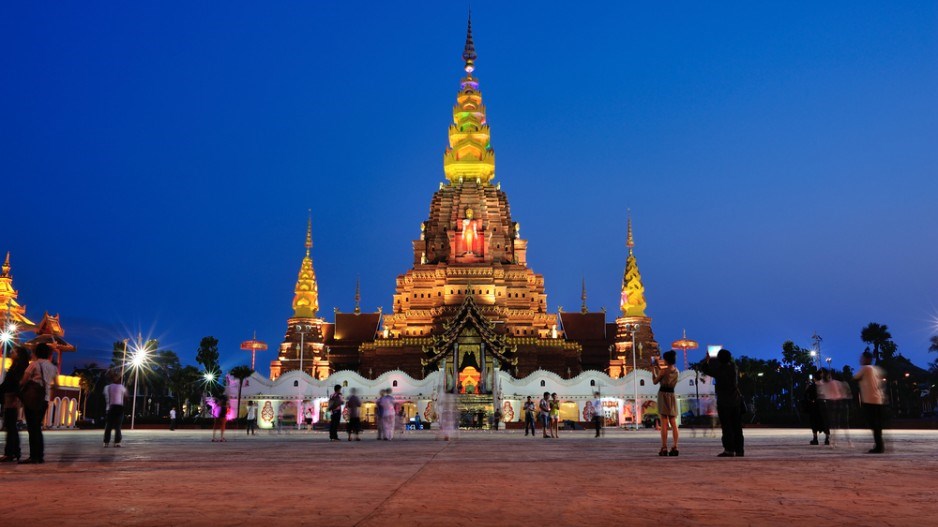Sun Wei, a sale manager with Ping An Real Estate Co., travels frequently between Beijing and Xishuangbanna in southwestern China’s Yunnan province.
Her company sells luxury villas, mostly to buyers who hail from China’s northern provinces.
Home to southern China’s dai tribe, Xishuangbanna’s lush tropical forests, palm-lined streets and clean air have long made it the exotic domestic sanctuary from frigid northern winters.
In the last year, a new army has stampeded its way toward this prefecture of less than 1 million people, on China’s southern border with Myanmar and Laos.
They are property buyers -- households with elderly or young family members -- desperate to find a refuge from the toxic smog that smothers northern China every winter.
“There’s an upsurge of inquiries and purchase this winter, following two heavy smog strikes in December and January,” Sun said in Beijing. “About 70 per cent of inquiries are from Beijing, most with urgency never seen before.”
Xishuangbanna’s property is booming, with 7,578 home units sold in the second half of 2016, a surge of 52 per cent compared with the first six months. Average prices remained little changed during the period at 4,928 yuan per square metre due to an increase in new units, according to Jinghong Property Info.
Ping An, the property unit of China’s second-largest insurer, bought a 1,333-hectare swath of land two years ago from the local prefectural government, aiming to transform Gasa township adjacent to the airport into a winter resort, part of a 65 billion yuan state development plan.
Ping An built a cluster of low-rise villas halfway up a verdant hill, designing each in the style of dai architecture, complete with splashing pools and wide open verandahs surrounded by exotic shrubbery. Beside the gated community sits the main commercial strip, where Ping An’s clinics will move in.
Ping An isn’t the sole developer in town.
Wanda Group, the theme park and cinema group owned by China’s wealthiest man, is also building in Xishuangbanna, as is Agile Property. A downtown residential project by Century Golden Resources Group attracted so many non-local buyers that it’s been dubbed the Out-of-towner City by local residents.
Ping An’s project now offers one-family houses from 80 sq m (861 square feet) to 190 sq m, with an average price of 20,000 yuan per sq m (HK$2,096 per square foot).
Compared with average property price of 54,000 yuan per sq m in the Chinese capital, that’s cheap enough to attract many Beijing visitors.
Yu Hong, a Beijing mother of a two-year old toddler, is one such customer.
After buying a home in Xishuangbanna for her parents, she found it the ideal sanctuary from Beijing’s choking smog. At the worst of the smog in early 2017, she scrambled to book air tickets to Xishuangbanna for her family
“All the tickets were sold out and we were the last to get on the flight,” she said. “We are like refugees struggling to escape a sinking ship. On the plane I heard all the little kids coughing. It’s a terrifying, unforgettable scene.”
Northern China’s smog refugees have also found their way to Hainan island, and as far afield as California, Canada and Australia.
Still, with Chinese authorities cranking up currency controls to stem a capital flight, domestic Chinese destinations offer easier access than the regulatory hoops and paperwork needed to remit vast sums abroad to buy overseas property.
“Comparison is inevitable,” said Liu Qian, a Xishuangbanna native and hostel owner, who recently visited Sanya on Hainan island. “Sanya still suffers from smog even if it’s minor compared with Beijing. The winter there is humid, sometimes cold.”
The first phase of Ping An’s Viva Ville project has sold out, the developer said on its website.
Yu Hong said she’s looking to buy a second home in Xishuangbanna.
“I’ve been thinking about the purpose of life,” she said. “What’s the point of earning money if we don’t possess health?”
Read the original article on the South China Morning Post.



